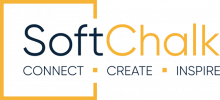Our guest post this week is from Stephen Holland sharing how important certificates are to students and teachers.
While watching college football one Saturday, I took note of the teams that recognize players’ game accomplishments with stickers on their helmets. Some of the players really have quite a collection proudly displayed on their helmets. By the way, if I were an opposing quarterback I think I would want to stay away from the most highly decorated players. It just seems a warning to me that a play I want to execute would have more chance of working if it went toward a less decorated player.
As I was watching the football games, I began to think about how to recognize the accomplishments of my students beyond the points for grades factor. I was already in this frame of mind as my online education class recently had discussed the merits of providing stickers, or more recess time, or certificates to students they will be teaching in the future. Many of the students in my education classes already have classroom experience and they observe that recognizing the students in such ways helps to optimize performance. My students added that recognizing their own students in similar ways helps to motivate them, leads to better academic performance, improves discipline, and develops pride.
I will share that I too like having certificates sent to me. Whenever I attend an online webinar, such as those offered through the Softchalk Innovator’s series, I always say yes to the offer to send a certificate of attendance as an email attachment. Beyond the positive feeling of printing out a sheet of paper with my name on it that I receive, I also do have a practical reason for holding the certificates. They can be shared as tangible proof when administrators ask me to demonstrate that I am actively updating my skills.
Extending this to my online students, following the discussion assignment focused on the merits of awards, I attached a certificate of achievement to the comments I gave them. Several of the students wrote to thank me for taking the time to do so. I thought that nice, but it also showed me students also enjoyed the recognition. I had made my point. Now I plan to award them all a certificate following the completion of the course. I will also expand this to other courses I teach.
Will the concept of including certificates of achievement become more common in the future? I think it is quite possible, as a way to signal quality of coursework.
With the ever-expanding world of online learning, I think a signal of quality of coursework will become a factor. I submit that certificates could become more and more important as indicators of achievement. For example, perhaps a group of instructors working independently or through an institution will more and more offer certificates to students who complete their courses. A group of instructors will need to discuss the standards that the students will achieve, and together they will be designing courses that meet those qualities. In so doing, the certificates awarded will gain more and more value over time as the merits of the courses become better known. As an instructor, I would like to see certificates and other indicators of success in a student’s portfolio. The more I know about the student’s path to my courses the more I know about what to do to help the student.
I have already mentioned Softchalk and this is a good source for implementation of certificates into a lesson. Certificates can be automatically delivered to students upon completion of a lesson and the inclusion of a percentage earned on a test can be included. In addition, Microsoft offers free template downloads for certificates. All that is needed is for a teacher to add his or her own creativity.
With that being said, I must end now and find that old shoebox full of old track medals and school awards I have buried somewhere in a closet.
 Steve Holland teaches English and Education classes online through the Iowa Community College Online Consortium (ICCOC). In 2012, the ICCOC honored him as Teacher of the Year. He recently retired after 25 years of teaching with Eastern Iowa Community College, but he continues to teach and serve as an education consultant. He holds a B.A. in journalism, an M.A. in English, an Ed.S. in Education, and an Ph.D. in Education, all through The University of Iowa. He has also served as a judge for Softchalk’s annual Lesson Challenge.
Steve Holland teaches English and Education classes online through the Iowa Community College Online Consortium (ICCOC). In 2012, the ICCOC honored him as Teacher of the Year. He recently retired after 25 years of teaching with Eastern Iowa Community College, but he continues to teach and serve as an education consultant. He holds a B.A. in journalism, an M.A. in English, an Ed.S. in Education, and an Ph.D. in Education, all through The University of Iowa. He has also served as a judge for Softchalk’s annual Lesson Challenge.


Leave a Reply